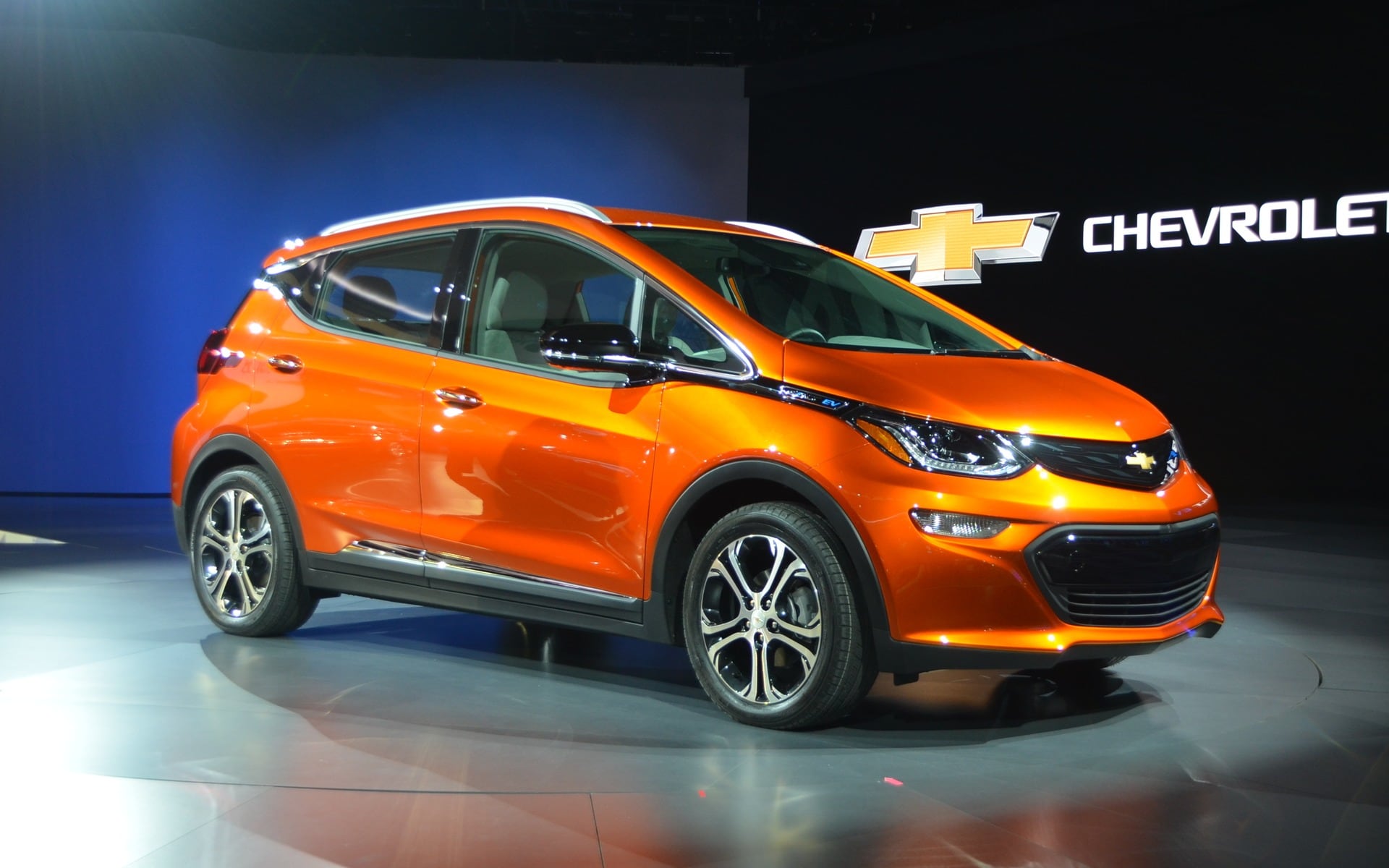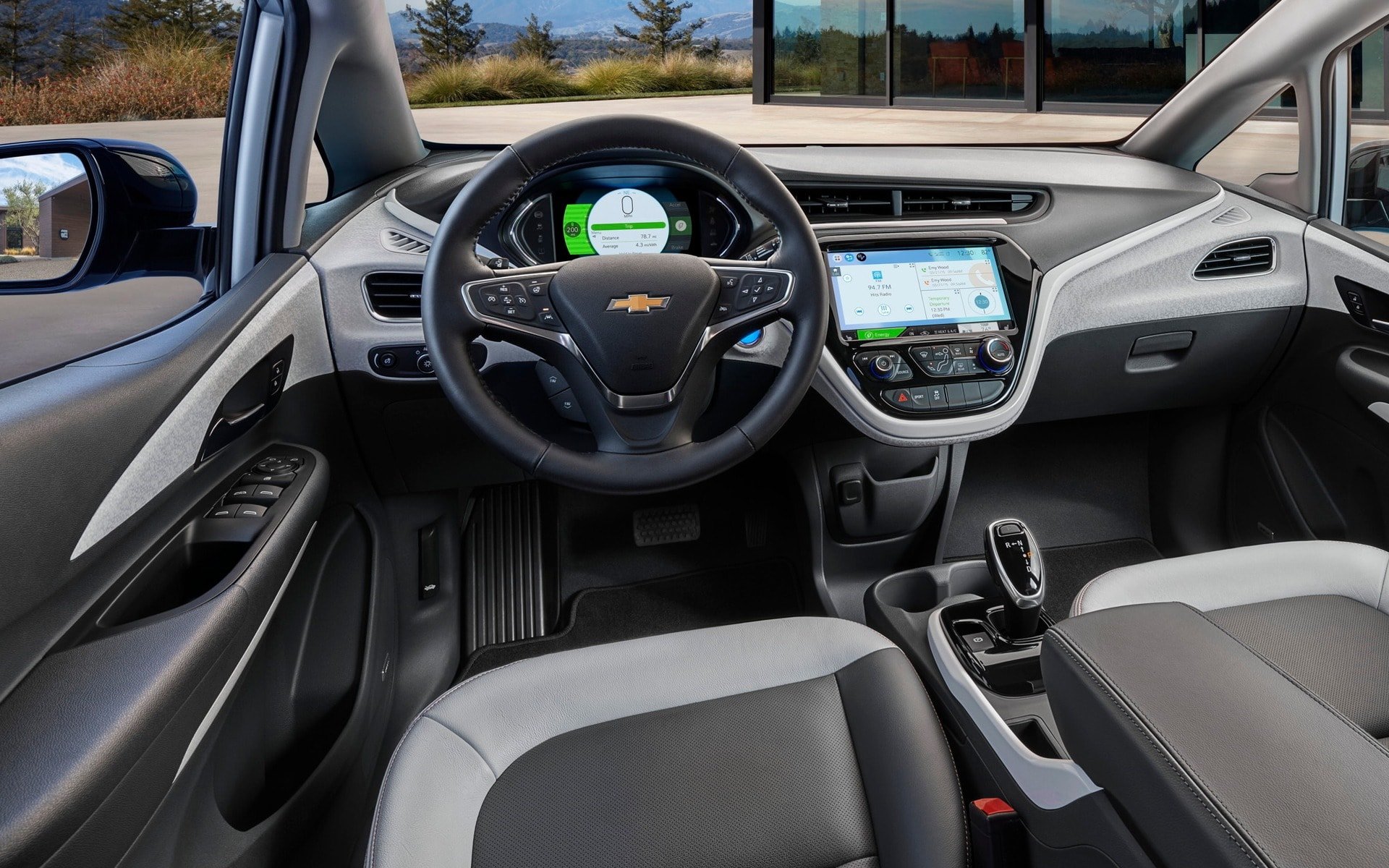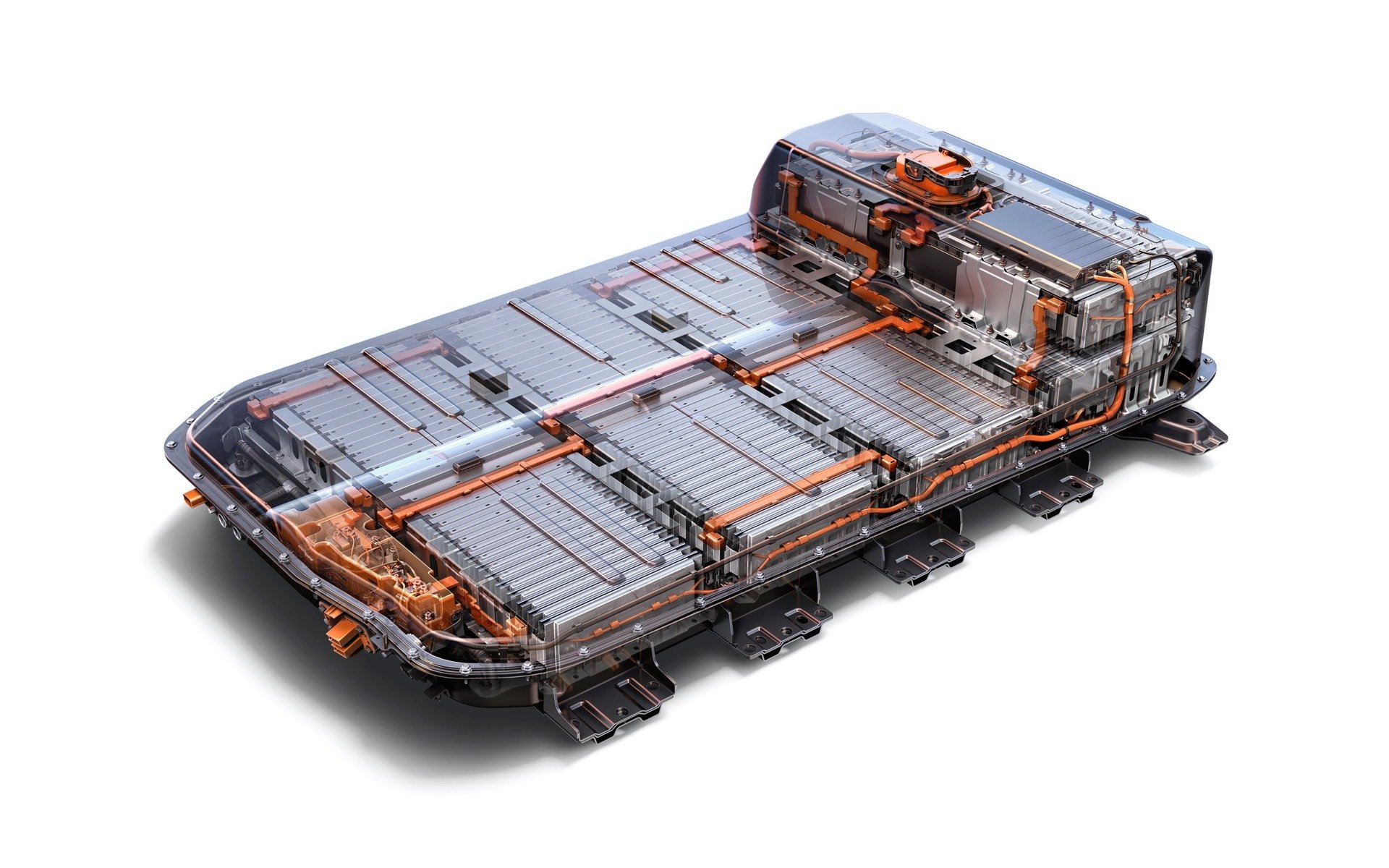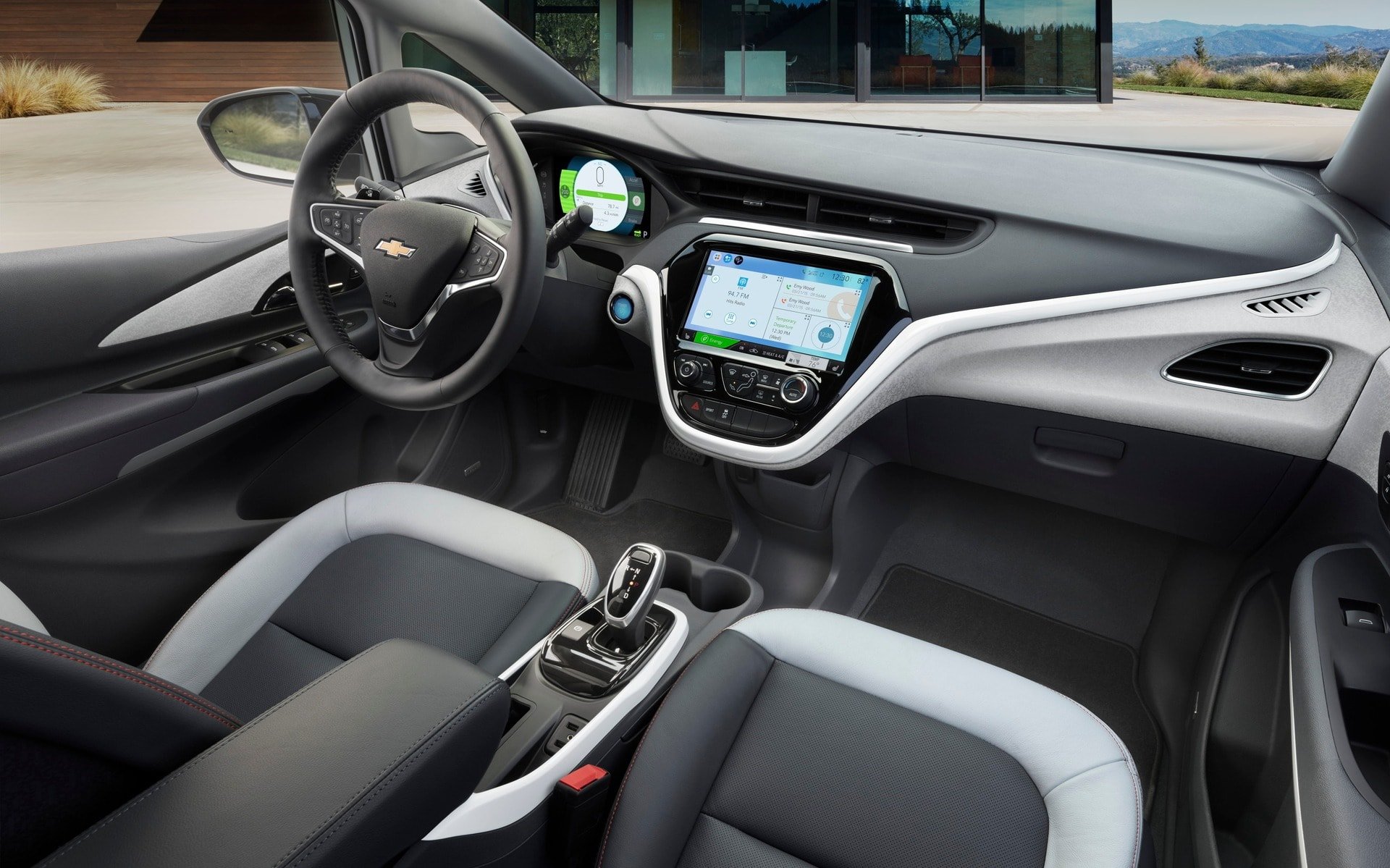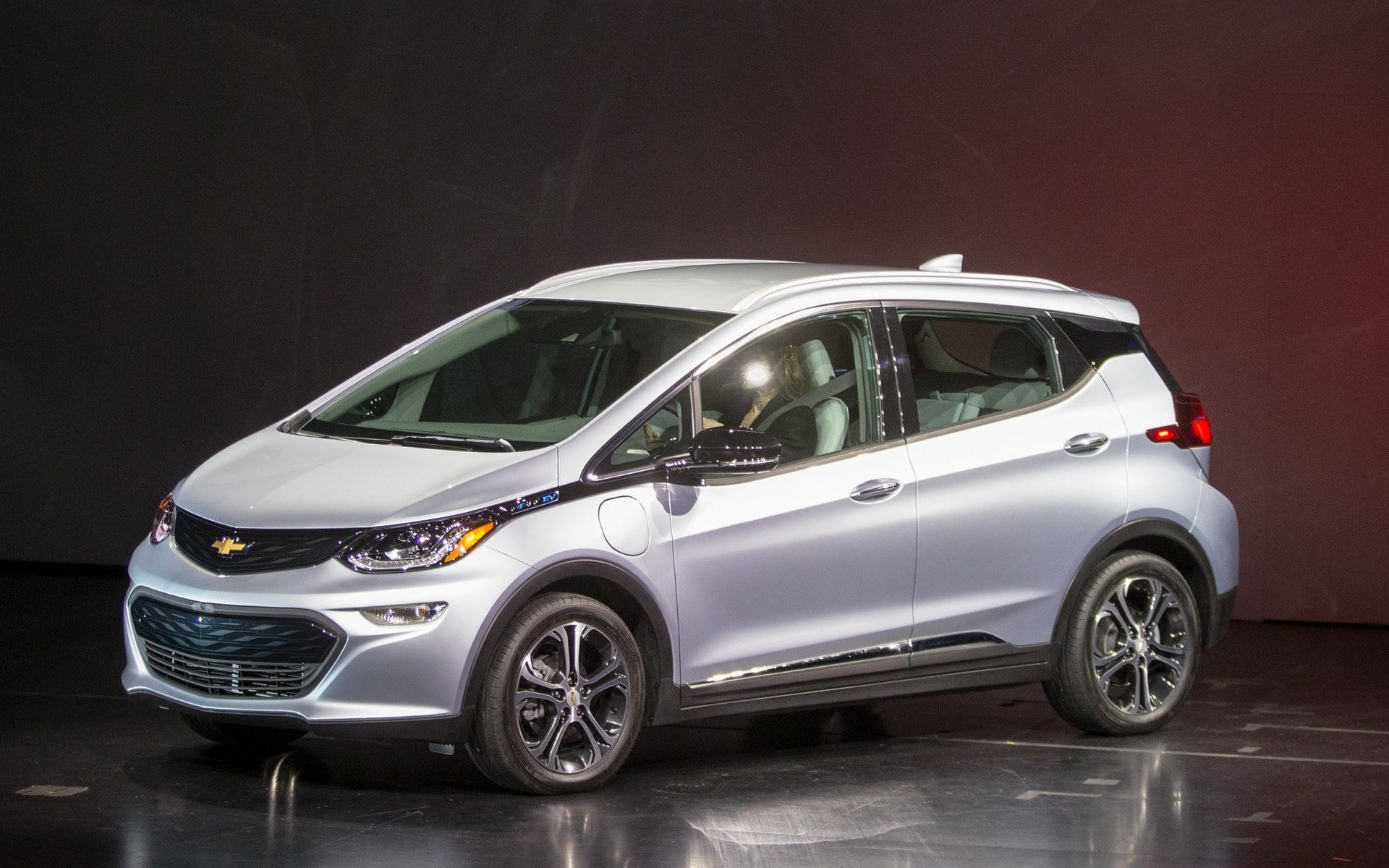We’ll be Driving the Revolutionary 2017 Chevrolet Bolt EV!
2017-01-23
While a single letter sets the Chevrolet Volt and Bolt apart, they're two very different cars. The Bolt EV boasts a fully electric powertrain, while the Volt is an extended-range EV with an on-board gasoline engine that as a generator so the car can keep running with the battery pack is depleted.
The Bolt EV has a 60-kWh, lithium-ion battery pack that allows the car to cover a distance of more than 380 kilometres on a single charge, according to Chevrolet's calculations. The electric motor develops 200 horsepower and 266 pound-feet of torque, and the manufacturer promises a 0-96 km/h (0-60 mph) time of less than seven seconds.
More importantly than straight-line acceleration, the Bolt EV's charge time is estimated at nine hours with a 240-volt outlet. The charge time with a 120-volt household plug hasn't been announced. And on a SAE Combo DC quick charger, a 30-minute charge will provide a driving range of 145 km.
The Bolt's dimensions are a little more generous than those of the Chevrolet Sonic, but we consider the EV as belonging in the same subcompact segment.
In Canada, the Bolt EV will carry an MSRP of $42,795 before freight and delivery charges as well as sales tax. Afterwards, it's applicable for a government rebate in certain provinces, which amount to $5,000 in British Columbia ($8,250 by trading in a vehicle that will be scrapped), $8,000 in Quebec and up to $14,000 in Ontario.
Stay tuned, because in a few days, we'll have all the details on our first drive of this electric vehicle that could very well become a thorn in Tesla's side. After all, the Bolt EV has won The Car Guide's Best New Car of the Year award as well as recently being awarded the North American Car of the Year title.
